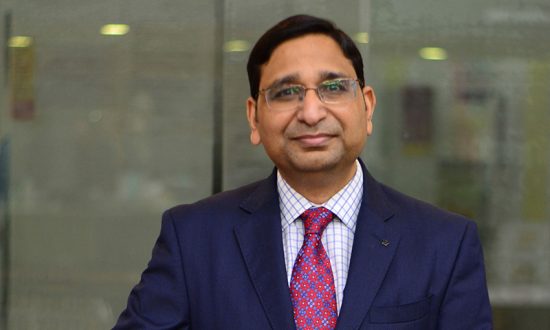Akhilesh Gupta is the Chief Investment Officer at Aviva India. He has an extensive experience of over 25 years in managing investments in various asset classes such as Equities, Fixed Income, Foreign Exchange & Trade and Structures Finance. His core skills include Asset Allocation, Portfolio Construction, Asset & Liability Management to contribute to economic value & Governance. Akhilesh has already had a successful stint with Aviva India as Associate Director and founding team member from 2002 to 2011.
I was blown away when my 21-year-old daughter gave me a Personal Finance book for Father’s Day. The book refreshed my memories of my dad, an army man, who taught us how to manage our personal finances. I remember how he used to make household budgets every month and simultaneously managed to save money to provide me with the best education he could.
I have been living the long-cherished dream of managing funds to compound clients’ capital at Aviva India for years, but it is my father who taught me the basics and built the foundation of whatever I know about money. It is his simple tips and methods that I live by, and they’ve made me who I am today. So, this Father’s Day, I want to celebrate and honour my father by sharing personal experiences and passing the lessons I learned from my army dad to all the children.
1. Where is the money coming from and where is it going?
We look up to the Indian army, not only to protect our nation but also for the impeccable qualities that make them stand apart from everyone else. Coming from an army background, my father had a rigorous and disciplined approach toward the finances of our house. He always taught us the importance of investing ones savings in different instruments and stressed upon mapping where the money goes. He used to write down our income and all the family expenditures to track the avenues where our family spends money. My army dad taught me that the first step to taking responsibility for your money is to make a precise record of what comes in and a plan for what goes out.
2. Plan well and execute even better
No assignment is carried out without sufficient preparation and strategy. The reasons are indisputable: no one wants to be caught in the cross-fire. Similarly, one must not become preoccupied with immediate wants and neglect strategizing and planning for their family’s future. This might feel cumbersome, as most financial decisions do. However, one must invest in suitable instruments and obtain sufficient insurance through Term Plans and other Endowment Policies, to safeguard themselves and their loved ones against financial uncertainty.
I learned how to effectively plan and execute strategies like my father practiced in the Recruitment Corps of the Indian Army, and I implement those lessons when making financial decisions.
3. Aim for winning the war, not the battle
Another thing I learned from my father was to follow rule-based investing. Rule-based fund investing involves the selection of stocks based on predetermined rules. When there is no human intervention, there is no bias in choosing stocks. Every situation requires a unique interpretation; thus, one must be financially wise to make the right judgment call.
Although one should have a diversified portfolio, my dad taught me that one must invest in the equity market. Among all types of investments, equity funds stand to produce high returns. They have the potential to outperform inflation, allowing investors to build a good corpus for the future.
Investors with long-term capital-generation ambitions should consider investing in equity funds. They carry some risk, but if one stays invested for a long time, they can recover. So, one must not dismiss Equity Markets over a temporary capital loss.
4. Save some ammunition for post-war days
My father always said, “Retirement is not the end of the road. It is the beginning of the open highway.” We have all heard about how unpredictable military duty and life can be. Having money set aside in a savings account is essential for the unexpected. Begin with an attainable goal and work your way up until you can pay three to six months of costs.
It is obvious that one will no longer be able to contribute to one’s retirement account once they leave active duty. So, it is critical to continue saving money to enjoy one’s golden years with peace.
We have often been told that life is a marathon, not a sprint. And our fathers have left no stone unturned to train us for anything that life can throw at us and have the best possible future.
So, whether it is personal learning or financial, it should be passed on to children so that they may share their wisdom with their children in the future. This Father’s Day, let us pledge to honour our dads and their learnings across all walks of life and pass on what we learned to the next generation.


